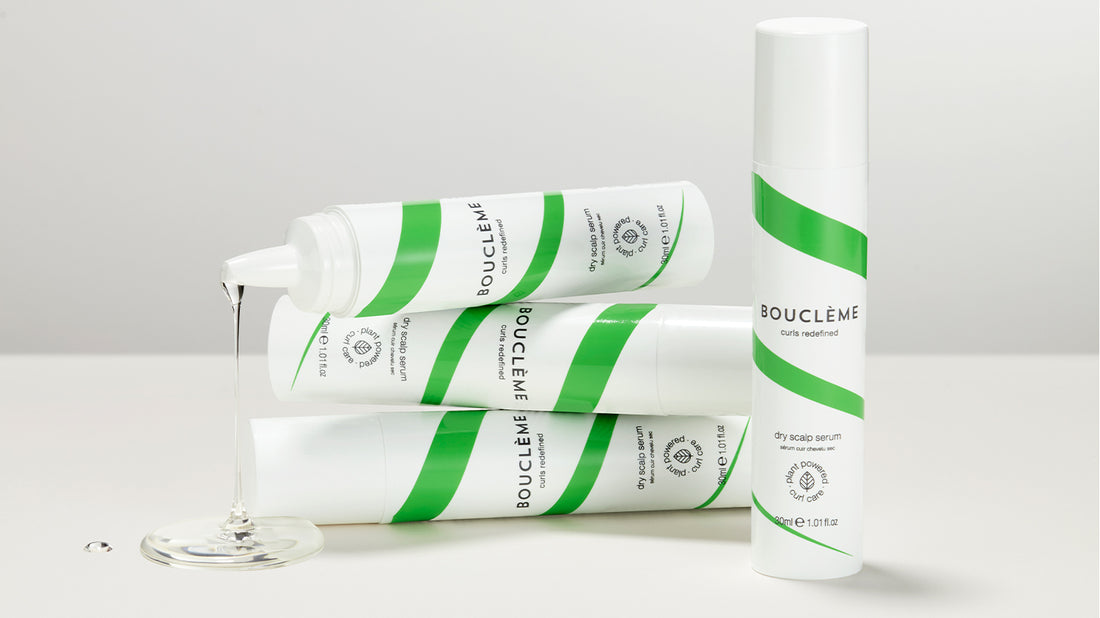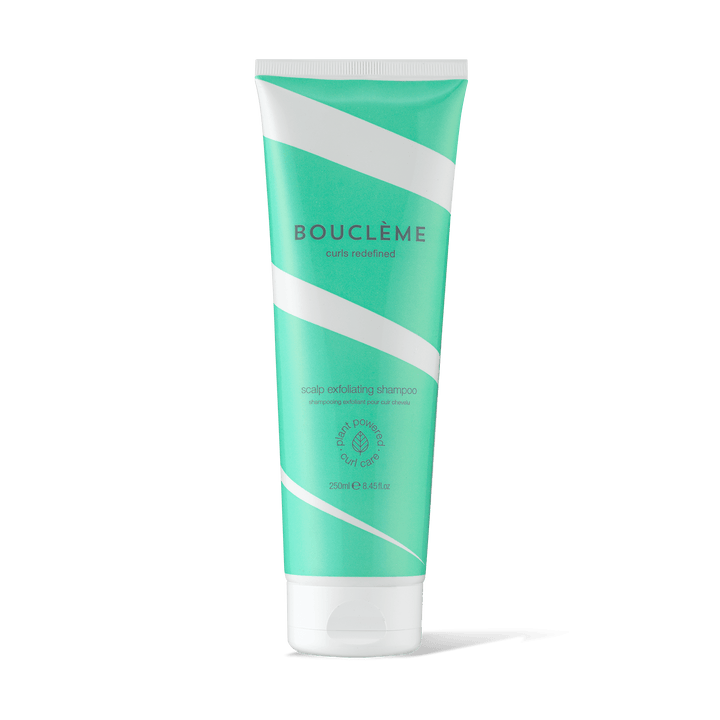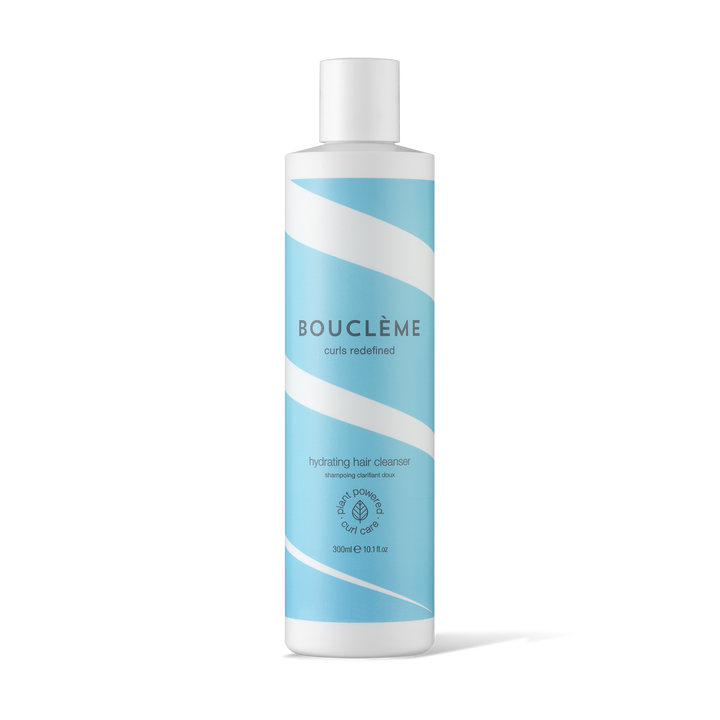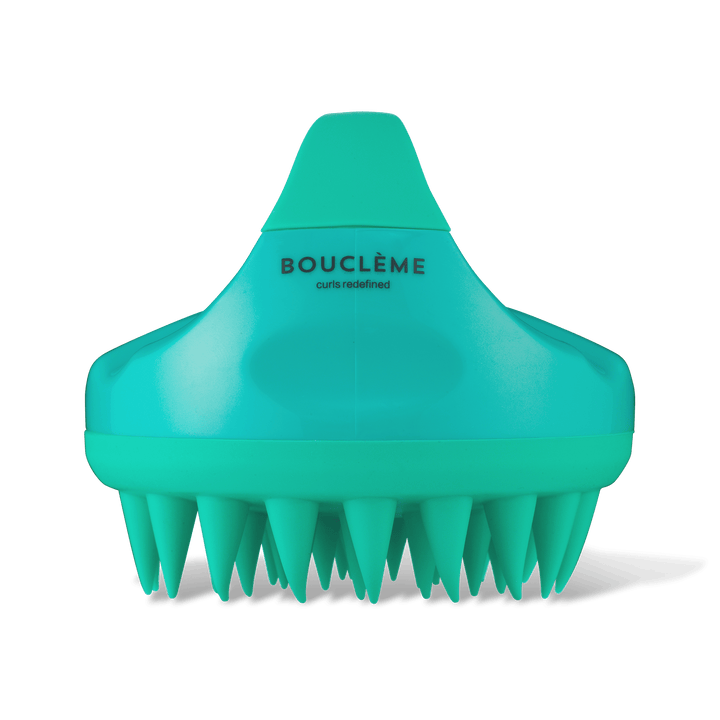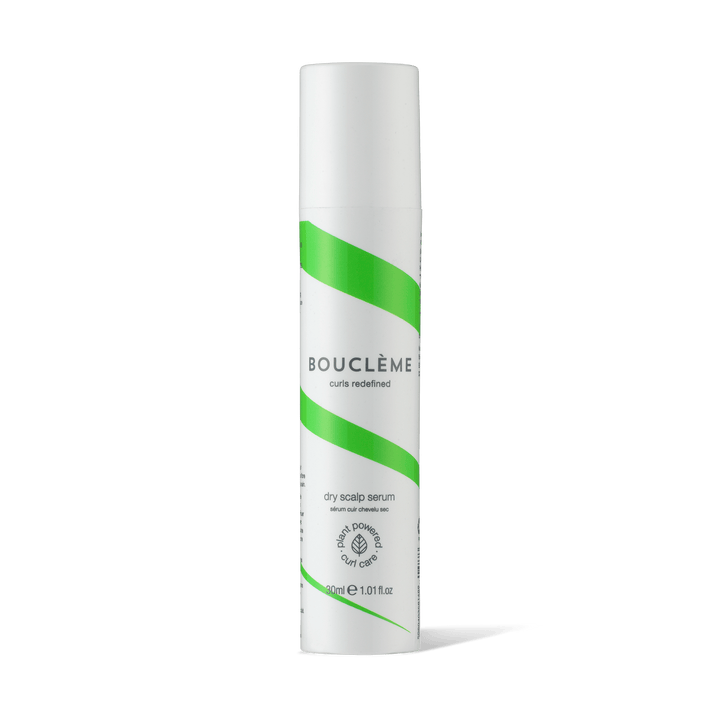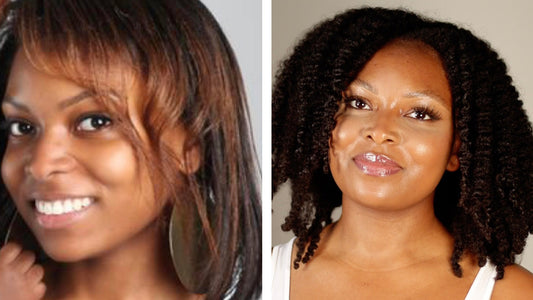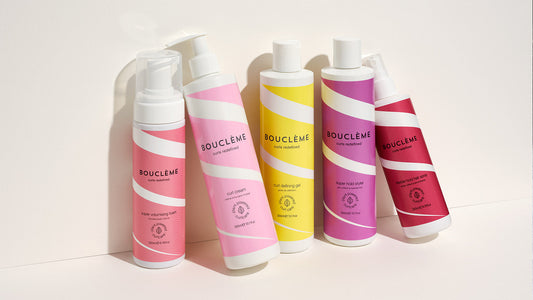How to treat dry scalp and dandruff for curly hair
Are you suffering from a dry, itchy scalp? Frustrated with dandruff in your hair? We know the struggle and sometimes the embarrassment that follows. We’re here to help.
Let’s break down the reasons behind dry scalp, distinguish it from dandruff, and offer up some practical tips and tricks, specially designed for your curly locks. Get ready to say goodbye to flakes and hello to a healthy, hydrated scalp and lustrous curls, waves and coils.
Why do people with curls have a dry scalp?
Curly hair is unique in its shape. This means natural oils tend to remain at the top of our hair. If combined with less frequent washes and extended protective styles, our scalp may suffer more from build ups and flakes. Plus, with its unique texture and density, curly locks can struggle to hold onto moisture, sometimes leading to dryness and dandruff.
But fear not! By understanding these quirks, we can tailor our hair care routine to give those curls the extra hydration they crave.
What causes a dry scalp?
Dry scalp is when the skin on your head and hairline doesn’t retain enough moisture, resulting in flaking and itchiness. Like most things in life, your dry scalp could be down to a combination of factors. Here are some of the common causes that could be playing a role:
- stress
- hormone fluctuations – discover how hormones can redefine your hair
- a diet lacking in oily fish, fruit and veggies
- sensitive skin – maybe you need fragrance-free hair products
- using the wrong hair products
- not drinking enough water
- smoking
- drinking too much alcohol
- too much product build-up
- central heating in winter – check out our winter curly hair care guide
- harsh, drying sun in summer
- overwashing your hair
What’s the difference between dandruff and dry scalp?
If you have dandruff, you’re not alone. Dandruff, or seborrhoeic dermatitis of the scalp, is very common and affects almost half of all adults, regardless of their age, ethnicity or gender. It’s caused by a yeast that lives on your skin, stress or an underlying health issue.
It can be tricky, however, to tell the difference between a dry, flaky scalp and actual dandruff, but distinguishing between the two is crucial for effective treatment. Dandruff is often characterised by oily, yellowish flakes, while dry scalp tends to produce smaller, white flakes.
How to treat dry scalp
Treating a dry scalp is all about giving your scalp some extra TLC. Start by using gentle, sulphate-free shampoos to cleanse away build-up without stripping away any natural oils. Incorporate hydrating products for dry scalp like a deep conditioning treatment to replenish moisture.
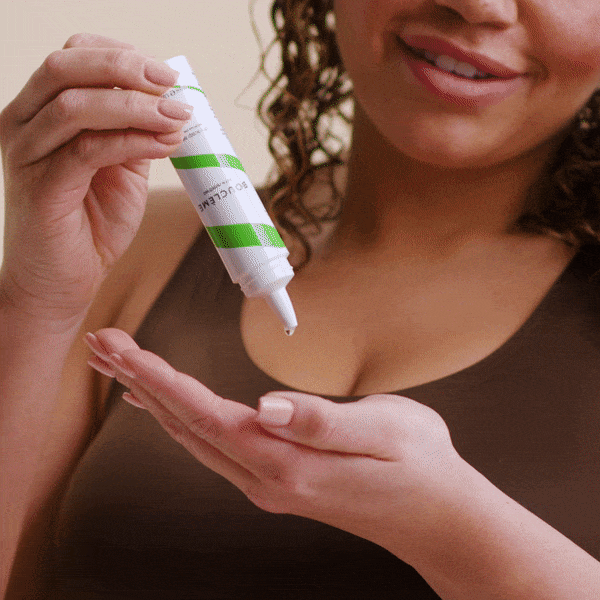
And for instant relief, add some soothing dry scalp serum drops into your cleanser and massage onto your scalp.
Here are 10 steps to take your scalp from flaky to fabulous.
1. Find the cause
Your first port of call is to find out what is causing your condition and base your plan of action around that. Please bear in mind that a dry and flaky scalp could be telling you something more. If your dandruff or dryness doesn’t clear up, see your doctor.
2. Go fragrance free
If you’re prone to irritation, one of the best ways to avoid flare-ups is by choosing fragrance-free formulas. Our fragrance free collection is packed full of active plant extracts, nourishing hair from the inside out, with no harsh parabens (artificial preservatives), drying sulphates, heavy silicones or fragrances.
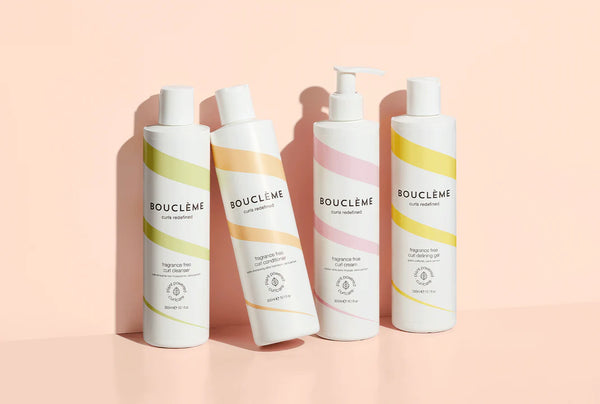
3. Remove scalp build-up with scalp exfoliating shampoo
Removing residue allows your hair to absorb moisture more effectively and will prepare your curls for your ongoing hair care routine. Use our Scalp Exfoliating Shampoo to wash away build-up and excess sebum.
The nourishing lather contains hydrogenated castor oil beads that gently exfoliate and stimulate, leaving the scalp soothed and invigorated and your strands whisper-soft and bouncy. Learn how to remove product build-up and relieve an itchy scalp.
4. Dry scalp serum: the best treatment for dry scalp and dandruff
Voted Best Scalp Care in the Woman & Home Beauty Awards 2022, apply our Dry Scalp Serum for instant relief from dandruff, scalp redness and irritation.
The active in our Dry Scalp Serum is propanediol caprylate – a planet-friendly ingredient that gets to the root cause of dandruff, reducing redness and irritation, and keeping the scalp flake free.
Our 100% plant-powered vegan formula is infused with organic argan oil to keep the scalp moisturised, jojoba oil, to mimic natural sebum and help skin repair and vitamin E to soothe and strengthen the skin barrier.
Add these calming drops to your cleanser or shampoo, adjusting the amount to what’s right for you. Use every wash day until your scalp is soothed.
Watch how Bria (@ukcurlybria) uses Dry Scalp Serum in her routine:
5. Boost circulation with scalp massager
Try our scalp massager to boost circulation and overall scalp health. It’s easy to grip, even when wet in the shower, and its silicone tips are flexible and soft to touch. It’s the perfect tool to accompany our Scalp Exfoliating Shampoo.
6. Pick a hydrating cleanser
Pick a vegan, sulphate-free shampoo like our Hydrating Hair Cleanser to gently cleanse your scalp and remove product build-up. Perfect for all hair types, including fine hair, our best-selling shampoo is infused with sea salt to boost volume and aid blood circulation to your follicles.
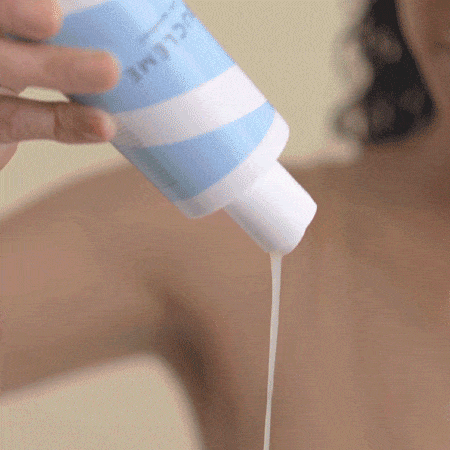
Plus, the salty element has the added bonus of creating that naturally tousled, beachy hair you get from swimming in the sea, without the dry crispiness it leaves behind!
7. Don’t overwash
Avoid the temptation to overwash your hair, as this can remove the natural oils produced by your scalp, leading to dryness and damage. Ideally, aim to wash your hair between one to three times a week.
Beware of harsh detergents like sulphates commonly found in shampoos. Instead, consider using our alternative cleansers formulated with milder, plant-powered and scalp-friendly ingredients.
8. Refresh, refresh, refresh
Sometimes life gets in the way and you may not feel like washing your hair. You may have a cold, run out of time between the gym and getting to your desk or going from beach to bar on holiday.
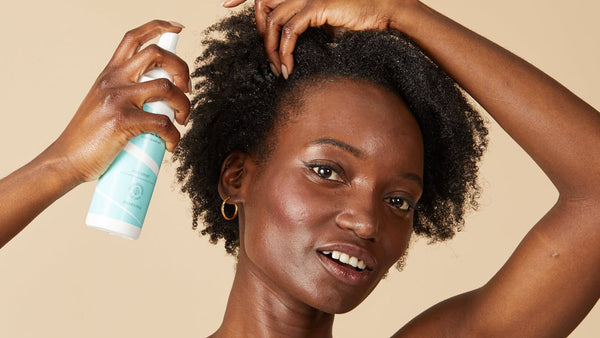
Try Root Refresh, a refreshing mist that soothes and deodorises the scalp to extend wash days. It’s also great post workout and when wearing hair in braids.
9. Don’t forget your diet
Maintaining a healthy scalp is the foundation of good curly hair care. Just as we add nutrients like amino acids, fatty acids, and panthenol (vitamin B5) to our hair for nourishment and repair, incorporating vitamins into our daily diet is key for healthy and strong hair growth.
A lack of vitamin B7 (biotin) has been linked to dry scalp problems, while eating fruit every day can help to prevent dandruff.
10. Drink lots of water
Keeping your scalp hydrated is super important for its health, and drinking enough water is a big part of that! When you’re well hydrated, your scalp stays moisturised and happy, which helps prevent dryness, flakiness, and itchiness as hydration supports your skin’s natural barrier function and promotes optimal circulation.
Drinking water can also help regulate the production of oils on the scalp, preventing both excessive oiliness and dryness.
By staying consistent and listening to your scalp and hair’s needs, you’re on your way to banishing dry scalp and dandruff for good. Remember, your hair care routine is your own special recipe for success: experiment and do what works for you.


